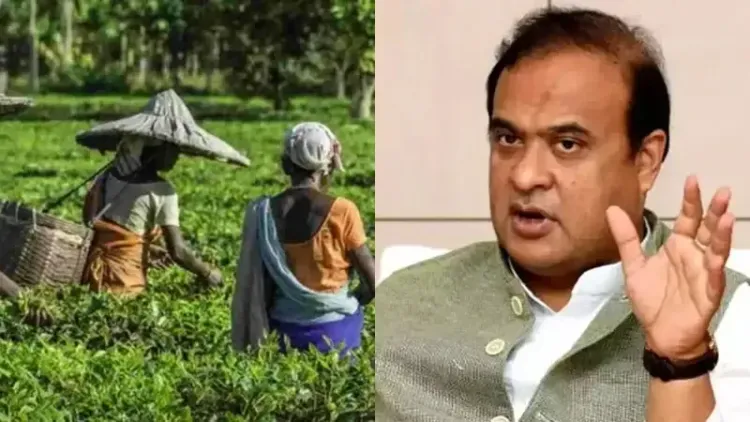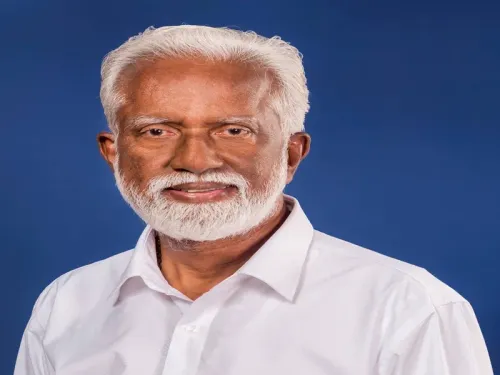Attabarie's Tea from Assam Achieves Global Acclaim at Las Vegas Championship: CM Sarma

Synopsis
Key Takeaways
- Assam's Attabarie tea estate recognized globally.
- CM Sarma celebrates the achievement.
- NETA seeks extension of oil palm cultivation scheme.
- Oil palm can be cultivated alongside tea.
- Government responds positively to NETA's appeal.
Guwahati, April 9 (NationPress) The Chief Minister of Assam, Himanta Biswa Sarma, declared on Wednesday that the tea produced at the Attabarie estate in Sivasagar has received the prestigious title of the world's finest black CTC tea during this year's world tea championship.
In a post on X, CM Sarma expressed, "The robust and rich taste of Attabarie Tea Estate in Sivasagar has been acknowledged as the world's top Black CTC tea at the 2025 World Tea Championship. As Assam Tea marks its 200th anniversary, this is a moment of great pride for our Cha Shramiks, estate workers, and the State itself."
Additionally, the prominent tea growers' organization, the North Eastern Tea Association (NETA), recently called on both the Central and state governments to prolong the National Mission on Edible Oils – Oil Palm (NMEO-OP) initiative within Assam's tea estates for the planting of oil palm trees.
NETA advisor Bidyananda Barkakoty noted that the Union Ministry of Agriculture and Farmers Welfare, in correspondence to Assam's Director of Agriculture on April 1, has consented to the extension of the NMEO-OP scheme for cultivating oil palm trees on five percent of the land within Assam's tea gardens.
As per Barkakoty, the Central government had introduced operational guidelines for the NMEO-OP scheme in April 2022, aimed at providing support, which is set to conclude in 2025-26.
He added that Assam's tea estates have been unable to utilize this scheme due to land classification and other stipulations in the guidelines.
Consequently, NETA has urged both the Central and Assam governments to expand the NMEO-OP scheme to include tea gardens.
In their communication, NETA pointed out that cultivating oil palm involves significant capital investment for tasks such as planting, irrigation, and maintenance during the initial four-year non-harvesting phase.
In response to NETA's request, the Union Ministry of Agriculture and Farmers Welfare has positively addressed the matter and has communicated with the Assam government's Agriculture Department to extend support for oil palm cultivation on five percent of tea garden land.
Barkakoty remarked that NETA has conducted an internal study and discovered that tea and oil palm can indeed be cultivated together harmoniously.









